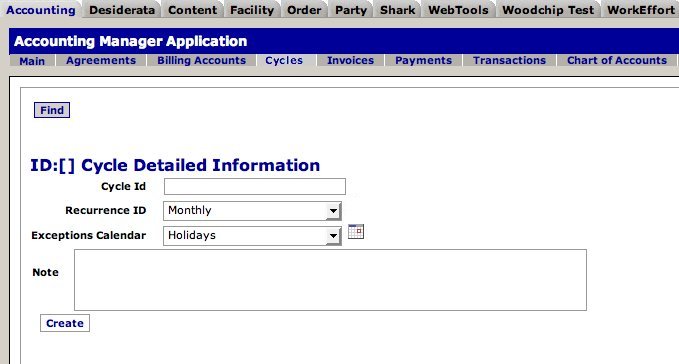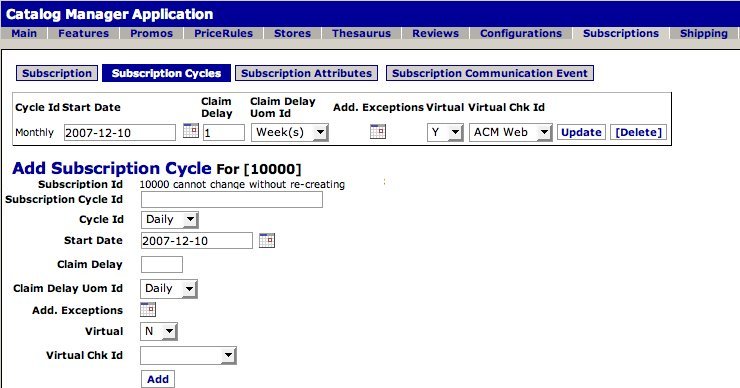Serials Checkin and Pattern Maintenance - some notes
These is a proposed implementation at this point, serials may not necessarily work like this
Serials maintenance is handled under subscriptions, which is associated with a start date.
The cycles that identify a pattern for a serial are defined individually, and a notes field is available for adding explanatory text if desired.
The recurrence definition is handled as an expandable list of options, and exceptions are associated with predefined calendars. So, for example, if a library does count holidays in determining whether a serial claim is warranted, one calendar can maintain this information. Further exceptions can also be placed when the cycle is associated with a subscription.
Any number of cycles can be associated with a subscription. A claim delay is used to identify the period of time to wait before initiating a claim. Addition exceptions can also be made using a calendar associated with this instance of the cycle. If a cycle is defined for a virtual resource, an option is to identify a web mechanism for checking the title's availability. Claims are identified by the job scheduler, which runs daily or more frequently if desired.
The job scheduler uses an iCal rule structure. The service logic looks like:
//work out permissions
GenericDelegator delegator = dctx.getDelegator();
LocalDispatcher dispatcher = dctx.getDispatcher();
GenericValue userLogin = (GenericValue) context.get("userLogin");
Security security = dctx.getSecurity();
Locale locale = (Locale) context.get("locale");
if (! security.hasEntityPermission("ACCOUNTING", "_ATX_POST", userLogin)) {
return ServiceUtil.returnError(UtilProperties.getMessage("FinancialsUiLabels",
"FinancialsServiceErrorNoPermission", locale));
}
//check patterns
List transactions = null;
try {
List conditions = UtilMisc.toList(
new EntityExpr("scheduledReceiveDate", EntityOperator.NOT_EQUAL, null),
new EntityExpr("scheduledReceiveDate", EntityOperator.GREATER_THAN_EQUAL_TO,
UtilDateTime.nowTimestamp()),
new EntityExpr("isReceived", EntityOperator.EQUALS, "N")
);
transactions = delegator.findByAnd("SerialsTrans", conditions);
} catch( GenericEntityException e ) {
Debug.logError(e.getMessage(), module);
return ServiceUtil.returnError(e.getMessage());
}
//invoke service to deal with titles due to be received
Map input = UtilMisc.toMap("userLogin", userLogin);
for (Iterator iter = transactions.iterator(); iter.hasNext(); ) {
GenericValue transaction = (GenericValue) iter.next();
input.put("serialsTransId", transaction.get("serialsTransId"));
try {
Map results = dispatcher.runSync("dealWithMissedSerialsTrans", input);
if (ServiceUtil.isError(results)) {
Debug.logError("Failed to process SerialsTransaction ["+
transaction.get("serialsTransId")+"] due to logic error: " +
ServiceUtil.getErrorMessage(results), module);
}
} catch( GenericServiceException e ) {
Debug.logError(e, "Failed to post scheduled SerialsTransaction ["+
transaction.get("serialsTransId")+"] due to service engine error: " +
e.getMessage(), module);
}
}
return ServiceUtil.returnSuccess();


